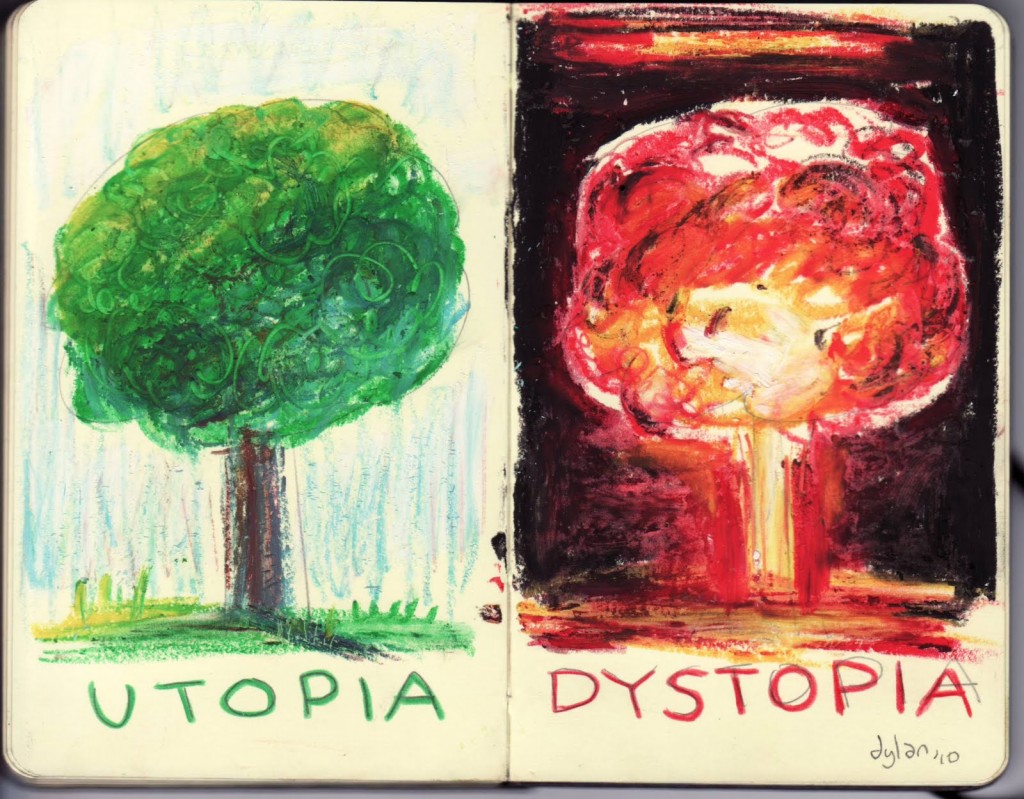Smart cities and the digital realm.

I found this lovely drawing, here ; http://thisisonline.org/index.php/reviews/bookreviews/138-utopia-and-distopia#
I recently found an interesting article Is anyone asking people what they want from the smart cities of the future ? Gary Graham, discusses the dangers of not consulting citizens, when it comes to creating urban technology.
I have most recently started contract work for the Western Cape Government, where we are working on creating e-services for citizens, to support them and generally make their lives a little easier when it comes to getting government related tasks done. Finding this article, made me re-think the e-government angle a bit. I really liked this angle of citizen designed cities, it made me feel like I was definitely in the right place.
Graham states that most of the topics discussed in plans of turning cities into smart cities hardly involve the citizens actual needs.
I recently attended a government meeting about future cities and found that all the discussion related to branding, bio-tech innovation, hi-tech transport infrastructure and opportunities for universities. I pointed out that at least half the population don’t engage with such things directly, if at all. Most everyday people are more concerned with how to get by and even how to survive in an increasingly hostile city.
This made me think, I have been so focused on designing technical systems with the user in mind, where we take complex tasks and make them easy to understand. What about simple survival ? How do you create digital survival mechanisms ? We have large corporations infusing these ideal dreamy thoughts of digital enlightenment, where we are able to have conversations with other citizens from other countries on our walls. Who thinks of survival when we’re faced with this constant digital Utopia? If the future will be like this age, there will still be uneven pockets of wealth and poverty. Most of the cities citizens will not be experiencing the digital city the way large corporations have told us we will.
The people living in cities far outnumber the people making decisions about what those cities should look like in the future. They are disconnected from the plans being made by companies and even governments on their behalf.
We need to start working with everyday citizens to find the right questions – and then work with them towards developing solutions to the problems they raise.
I think this article really changed my perspective on the e-services and e-government because of my fascination with science fiction, I have always watched Star Trek in awe of what the future holds. Gene Roddenberry, strives to redefine human nature in Star Trek, by creating worlds and dimensions, in which humans are travelling through galaxies, ultimately spreading peace. I have escaped into Roddenberry’s Utopian imagination many times and felt a great deal of hope for our future, but I believe there is plenty of work to be done before then.
Graham, points out the dire need to reassess the digital utopia we have all been waiting for. This is true innovation, infusing dreams with practicality to solve problems and create equality, right ?
Leave a Reply